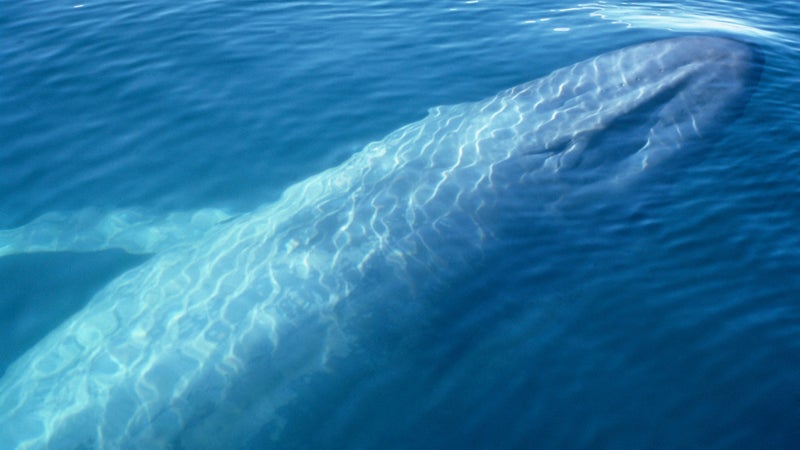Residents in Trout River, Newfoundland, are about a 25-meter (81-foot) blue whale carcass that washed up on shore last week. The animal is believed to have perished in heavy ice.
In the short term, Trout River (population 650) might see a rise in tourism; blue whale sightings are rare, and this posthumous exemplar offers a unique opportunity to behold the world’s largest mammal in its entirety. Cetacea corpse peepers might end up being punished for their curiosity, however, as there is a chance of the carcass exploding, due to the buildup of methane gas during the decomposition process. report that the whale has already bloated to twice its normal size.
Although the threat of explosion has inspired increased viewings of —and a number of —the actual chance of such a spectacle occurring is quite slim, at least according to folks such as Jack Lawson, a scientist from Canada’s Fisheries Department.
“At some point, the skin of the animal will lose some of its integrity as all of the connective tissue starts to break down,” Lawson said. “Eventually, that gas will seep out. … It will just deflate like an old balloon.”
For residents of Trout River, that still doesn’t solve the problem of the less-than-pleasant odor that will emanate as the whale’s flesh begins to rot.
Trout River might want to enjoy its tourist influx while it lasts.

